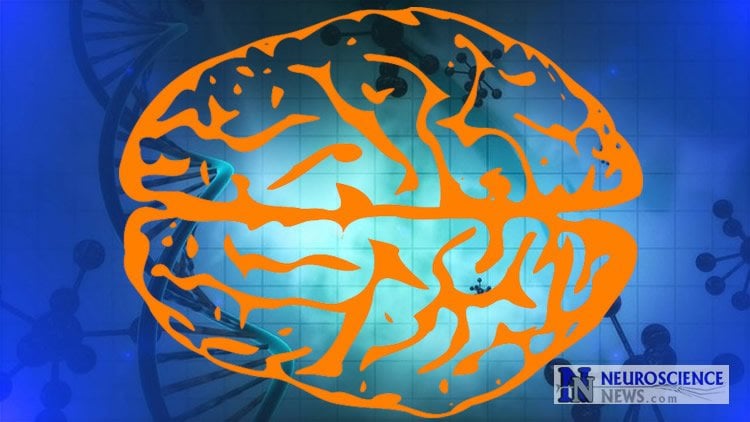Findings raise hope for new ALS treatments that target immune cell dysfunction.
Cedars-Sinai research scientists have found that immune cells in the brain play a direct role in the development of amyotrophic lateral sclerosis, or ALS, offering hope for new therapies to target the neurodegenerative disease that gradually leads to paralysis and death.
The findings will appear in the journal Science on March 18, 2016.
The researchers focused on a genetic mutation that causes ALS, also known as Lou Gehrig’s disease, and frontotemporal dementia, another neurological disorder that typically leads to changes in personality, behavior and language.
The investigators developed two genetic strains in mice lacking the gene, known as C9orf72, which they found is important for the function of the immune system in the brain.
Instead of developing ALS, mice without the gene unexpectedly suffered immune system abnormalities. Structures within immune cells — known as lysosomes — that normally dispose of unwanted cellular material stopped functioning properly without the C9orf72 gene.
“The C9orf72 gene is critical for the function of immune cells in the brain, adding to growing evidence that the brain’s immune system actively contributes to disease rather than simply responding to injury,” said Robert H. Baloh, MD, PhD, senior author of the study and director of Neuromuscular Medicine in the Department of Neurology and the multidisciplinary ALS Program at Cedars-Sinai. “These findings continue a paradigm shift in the way we think of how brain cells are lost in conditions like ALS and Alzheimer’s disease.”
ALS gradually kills nerve cells in the brain and spinal cord. It is one of the most prevalent neuromuscular diseases, resulting in more than 5,600 new diagnoses in the U.S. each year, according to the ALS Association. Around 10 percent of those diagnoses are caused by the mutation of the C9orf72 gene.
Studies suggest that about 500,000 people in the U.S. are carriers of the mutation.
Baloh and fellow researchers noted that their findings may point the way to new therapies to target immune cell dysfunction, particularly in patients carrying the C9orf72 gene mutation. He said that drugs aimed at decreasing levels of the gene should also be approached with caution because they could further disrupt the immune system.
Jacqueline Gire O’Rourke, PhD, a project scientist who contributed to the study, said the results also could help physicians understand the disparities between carriers of the gene mutation and other ALS patients.

“Our work opens the possibility that C9orf72 gene carriers may even respond differently to immune modulating drugs than other ALS patients,” O’Rourke said.
Clive Svendsen, PhD, director of the Board of Governors Regenerative Medicine Institute, where the research was conducted, added that Baloh’s research represents an important step toward understanding the role of this particular genetic mutation.
“These new findings will make the field think differently about the causes of ALS,” said Svendsen.
Other Cedars-Sinai scientists contributing to the study included Alberto Yáñez, PhD; AKM Ghulam Muhammad, MBBS, PhD; Ritchie Ho, PhD; Kevin Kim, PhD; Helen Goodridge, PhD; Deepti Lall, PhD; and Shaughn Bell, of the Board of Governors Regenerative Medicine Institute. Also contributing were researchers from the Washington University School of Medicine in St. Louis and the Jackson Laboratory in Bar Harbor, Maine.
Source: Anasia Obioha – Cedars Sinai Medical Center
Image Source: The image is in the public domain.
Original Research: Abstract for “C9orf72 is required for proper macrophage and microglial function in mice” by J. G. O’Rourke, L. Bogdanik, A. Yáñez, D. Lall, A. J. Woll, A. K. M. G. Muhammad, R. Ho, S. Carmona1, J.P. Vit, J. Zarrow, K. J. Kim, S. Bell, M. B. Harms, T. M. Miller, C. A. Dangler, D. M. Underhill, H. S. Goodridge, C. M. Lutz, and R. H. Baloh in Science. Published online March 17 2016 doi: 10.1126/science.aaf1064
Abstract
C9orf72 is required for proper macrophage and microglial function in mice
Expansions of a hexanucleotide repeat (GGGGCC) in the noncoding region of the C9orf72 gene are the most common genetic cause of amyotrophic lateral sclerosis (ALS) and frontotemporal dementia. Decreased expression of C9orf72 is seen in expansion carriers, suggesting that loss of function may play a role in disease. We found that two independent mouse lines lacking the C9orf72 ortholog (3110043O21Rik) in all tissues developed normally and aged without motor neuron disease. Instead, C9orf72 null mice developed progressive splenomegaly and lymphadenopathy with accumulation of engorged macrophage-like cells. C9orf72 expression was highest in myeloid cells, and the loss of C9orf72 led to lysosomal accumulation and altered immune responses in macrophages and microglia, with age-related neuroinflammation similar to C9orf72 ALS but not sporadic ALS human patient tissue. Thus, C9orf72 is required for the normal function of myeloid cells, and altered microglial function may contribute to neurodegeneration in C9orf72 expansion carriers.
“C9orf72 is required for proper macrophage and microglial function in mice” by J. G. O’Rourke, L. Bogdanik, A. Yáñez, D. Lall, A. J. Woll, A. K. M. G. Muhammad, R. Ho, S. Carmona1, J.P. Vit, J. Zarrow, K. J. Kim, S. Bell, M. B. Harms, T. M. Miller, C. A. Dangler, D. M. Underhill, H. S. Goodridge, C. M. Lutz, and R. H. Baloh in Science. Published online March 17 2016 doi: 10.1126/science.aaf1064






